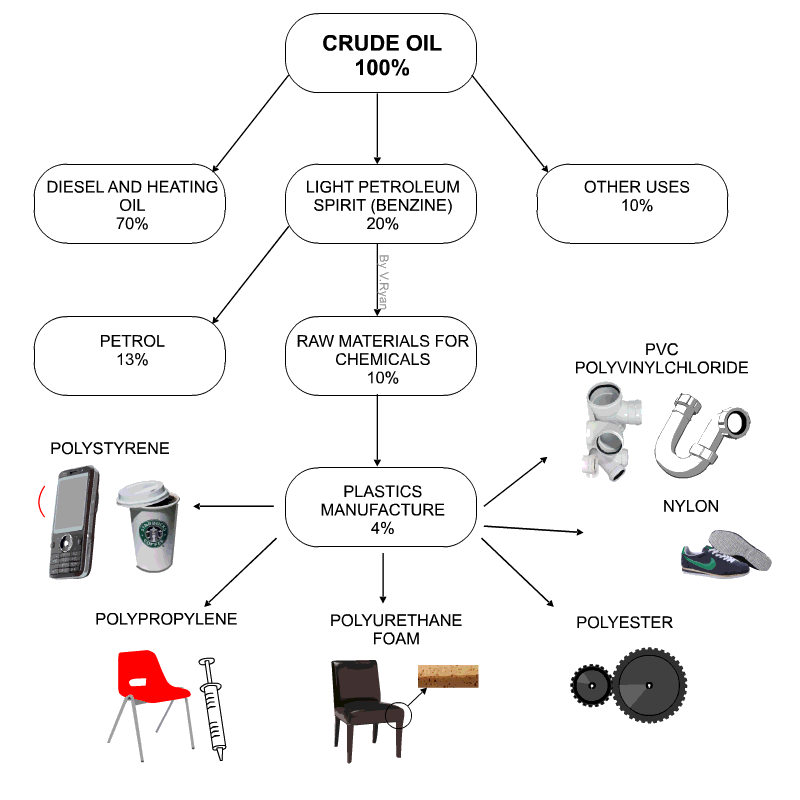| |
| CLICK HERE FOR INDEX PAGE |
| |
| PLASTICS, FUELS AND CHEMICALS FROM CRUDE OIL |
| V. Ryan © 2011 |
| |
|
PDF FILE -
CLICK HERE FOR PRINTABLE WORKSHEET |
|
|
Oil refineries ‘refine’ oil in massive quantities, to produce the fuels we
need. These include diesel, petrol and heating oil. However, some of the
raw materials we need to manufacture plastics, are also extracted from oil
at the refinery. When crude oil is refined, four percent ends up as raw
materials for the production of plastics.
|
|
|
|
Oil is used widely for the production of plastics as it is composed of
carbon and hydrogen. This is why oil is called a hydrocarbon. Oil and
natural gas are the most important raw materials for plastics manufacture.
To the plastics industry, Naphtha is the most important fraction distilled
from crude oil. It is used in the production of a range of plastics. |
|
|
|
|
|
|
 |
| |
|
|
|
|
|
CLICK HERE FOR
RESISTANT MATERIALS INDEX PAGE |
|
|
|
CLICK HERE FOR PRODUCT DESIGN INDEX PAGE |
| |
|
